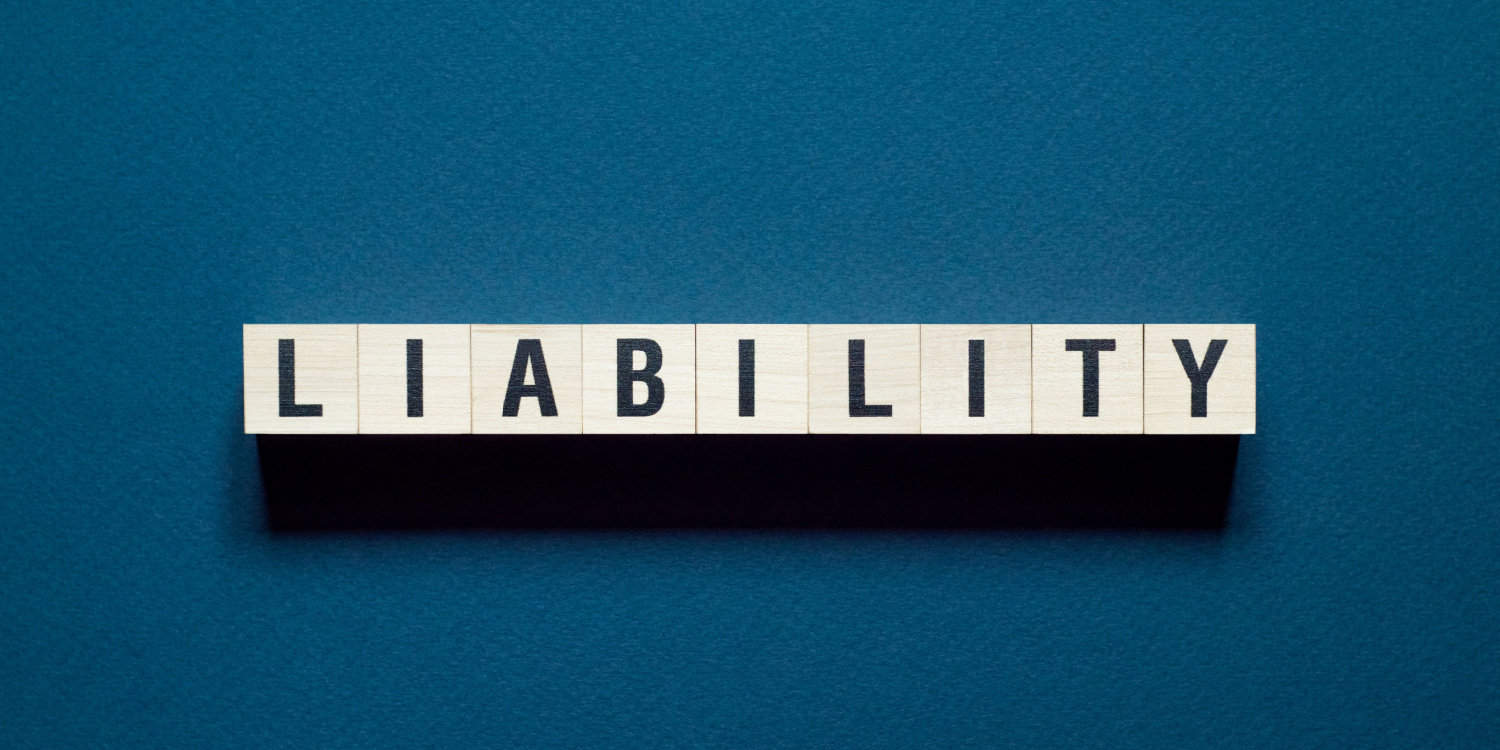Limited liability is a legal principle that limits the extent to which members of a limited company are personally responsible for the debts or financial losses of the business. Depending on the type of company, members’ liability will be determined by the nominal value of their shares or their ‘guaranteed amount’. Under certain circumstances, company directors may also be held liable for company debts, but this is not typical.
Key takeaways
- Limited liability protects members from personal financial risk, capping their responsibility to their share or guarantee amount.
- Directors can lose limited liability protection if they engage in wrongful or illegal actions during their tenure.
- LLP members are shielded from personal liability beyond their capital contributions, but personal guarantees can negate this protection.
In this blog, we discuss the extent of limited liability as it applies to the members and directors of a company, touching on the situations where it may be disregarded, and the resulting consequences. We also explain how it works in a limited liability partnership (LLP).
Limited liability of company members
Limited liability is one of the key features of companies limited by shares and companies limited by guarantee. Both types of companies exist as distinct legal persons in their own right, which means they are responsible for their own actions and financial obligations. Consequently, members are protected from personal exposure to significant financial risk.
In a limited by shares company, the liability of members (known as shareholders) is limited to the fixed nominal amount that they agree to pay for their shares.
In a limited by guarantee company, the liability of members (known as guarantors) is limited to the amount that they agree to contribute to the assets of the company if it is wound up. This is referred to as a ‘guaranteed amount’ or ‘guarantee’.
- What does it mean when a company is limited by shares?
- Where is the best place in the UK to start a business in 2026?
- Why would I set up a limited by guarantee company?
Generally, companies choose to set the nominal value of shares and guarantees at £1 – a very small sum. This means that, in the vast majority of companies, the financial liability of members is just £1. However, if a shareholder owns multiple shares, they are liable for £1 for every share they hold.
For many shareholders and guarantors, this is the maximum sum they are legally required to contribute toward the debts or financial commitments of the company if it becomes insolvent or is wound up. Beyond this, they only risk losing the capital they already invested in the business.
Most shareholders pay for their shares as soon as they take them. In such instances, they have no further financial obligation to the company. However, if they take any of their shares on an unpaid or partly-paid basis, they must contribute the outstanding amount when the company requests payment.
Guarantors, on the other hand, only pay the guaranteed amount if the company is unable to pay its debts, or when it is being closed down.
Limited liability of company directors
The situation is different for company directors. Unless they are also shareholders, they do not usually have any financial obligation to the companies they run. However, this protection from liability does not extend to directors in all situations.
If a director signs a personal guarantee for a company loan, for example, they are personally responsible and ultimately liable if the company is unable to satisfy this financial obligation. Similarly, if they have an overdrawn director’s loan account (i.e. they owe money to the company), they remain liable for any outstanding balance even if the company becomes insolvent.
Limited liability protection may also be disregarded if a director is found to have acted in a manner that is deemed improper or unlawful. This may be due to actions such as:
- failing to uphold their legal duties
- obtaining company finance through fraudulent means
- wrongful trading
- director misfeasance
- paying dividends whilst the company is insolvent
- disposing of company assets for below market value
Under any such circumstances, a director may be held liable for some or all of the company’s debts. They will have to use their own funds or assets to cover the liability, which may lead to bankruptcy.
Moreover, losing the protection of limited liability can result in director disqualification for a period of up to 15 years. In the most extreme cases involving fraudulent trading, directors can even face criminal convictions and prison sentences.
Liability of LLP members
Limited liability protection also applies to the members of limited liability partnerships (LLPs). Like limited companies, LLPs are responsible for the financial obligations of the business and any other liabilities arising from their actions.
The extent of each member’s liability for the debts of the LLP is usually limited to the amount of their agreed capital contribution to the business. These contributions are decided by express agreement between the members, and they are (usually) set out in a private LLP agreement.
- The benefits of forming a limited liability partnership
- Where is the best place in the UK to start a business in 2026?
- How to convert a partnership to an LLP
In the absence of any such agreement, the default provision in the Limited Liability Partnership Regulations 2001 provides that:
“The LLP must indemnify each member in respect of payments made and personal liabilities incurred by him in the ordinary and proper conduct of the limited liability partnership; or in or about anything necessarily done for the preservation of the business or property of the limited liability partnership.”
Therefore, members are not personally responsible for the LLP’s debts and obligations beyond their capital contributions. In the event of insolvency, their personal assets are protected.
However, there are certain situations where limited liability may be disregarded, including wrongful or illegal actions, or omissions carried out by any LLP member in the course of the partnership’s business. Under any such circumstances, all LLP members may be jointly and severally liable for any resulting damages or losses.
Additionally, limited liability protection will be disregarded when an LLP member signs a personal guarantee on any business loans or contracts taken out on behalf of the partnership.
Thanks for reading
Limited liability is a central feature of the limited company and LLP structures. The extent of this protection enables company owners, directors, and LLP members to minimise their personal exposure to significant financial risk.
However, care must be taken, because under certain circumstances you may lose the privilege of limited liability. It only stretches so far.
If you have any questions about this post, or would like to speak to us about setting up a limited company or an LLP, please comment below or contact our team, and we’ll be happy to help.














Join The Discussion
Comments (2)
Hello. I am considering buying a leasehold flat in a block of flats which has been established as a private company limited by guarantee without share capital. If one of the other residents (guarantor ) behaves unlawfully so as to lose the privilege of limited liability protection would all guarantors lose that protection or just the one who acted unlawfully?
I’ve never bought a residential flat before so I’m trying to understand all the pitfalls. I wouldn’t want to risk losing my invested capital (the purchase price). Thankyou in advance.
Thank you for your kind comment, Jacqueline.
Unfortunately as we are not regulated to provide legal advice, we are unable to provide advice on specific scenarios. We would recommend contacting a solicitor for further assistance.
Please accept our apologies for any inconvenience caused.
Kind regards,
The QCF Team